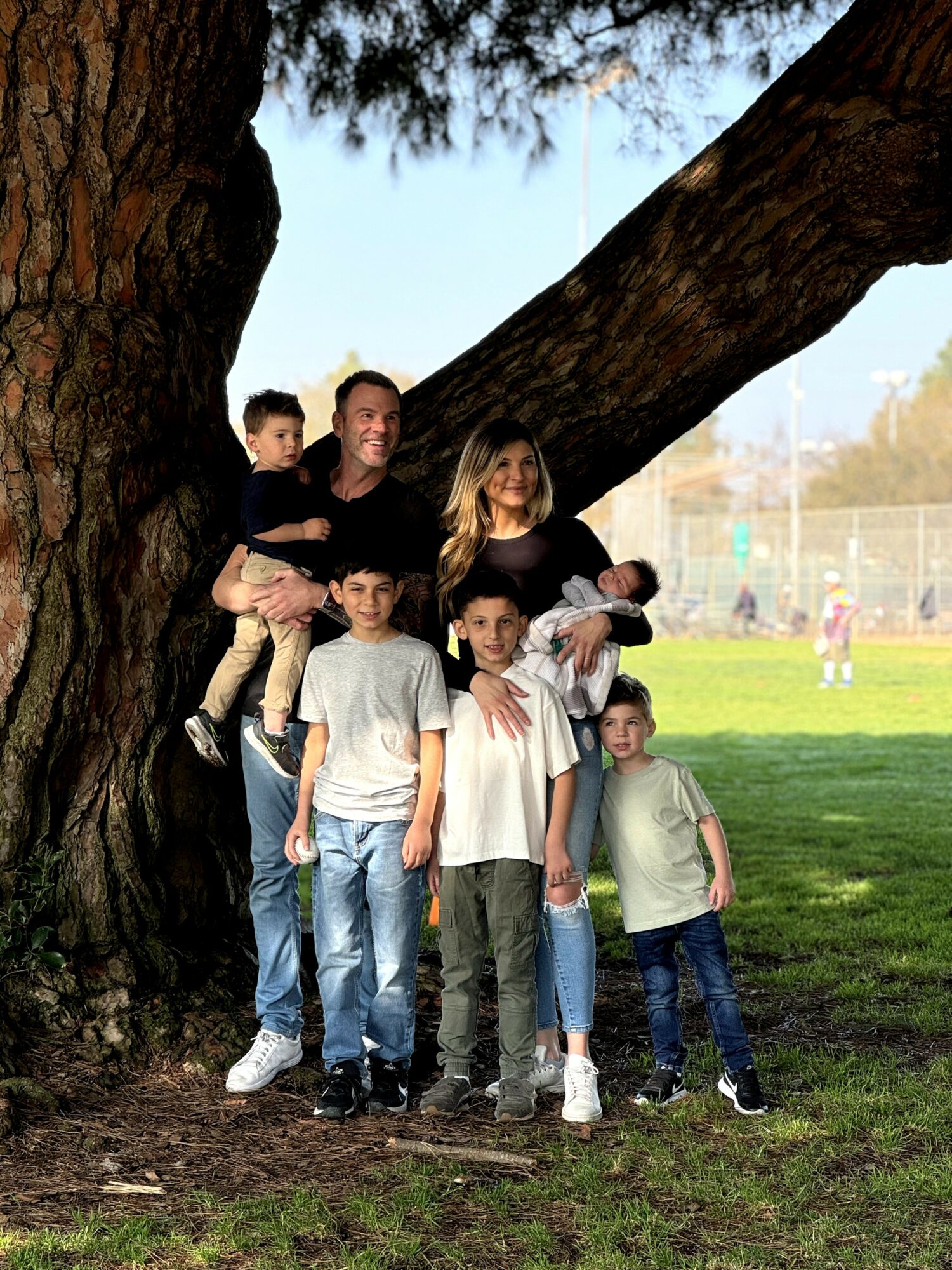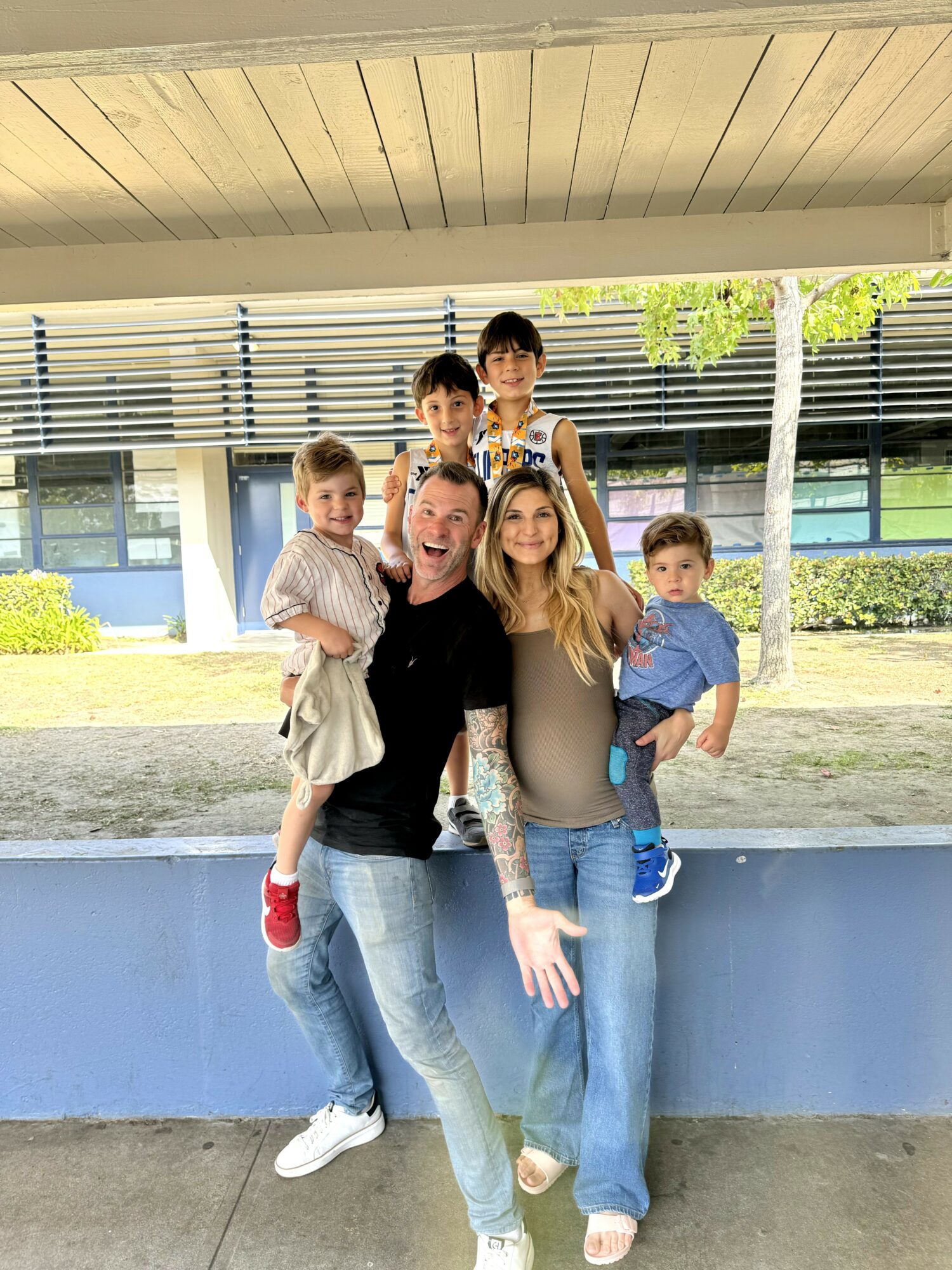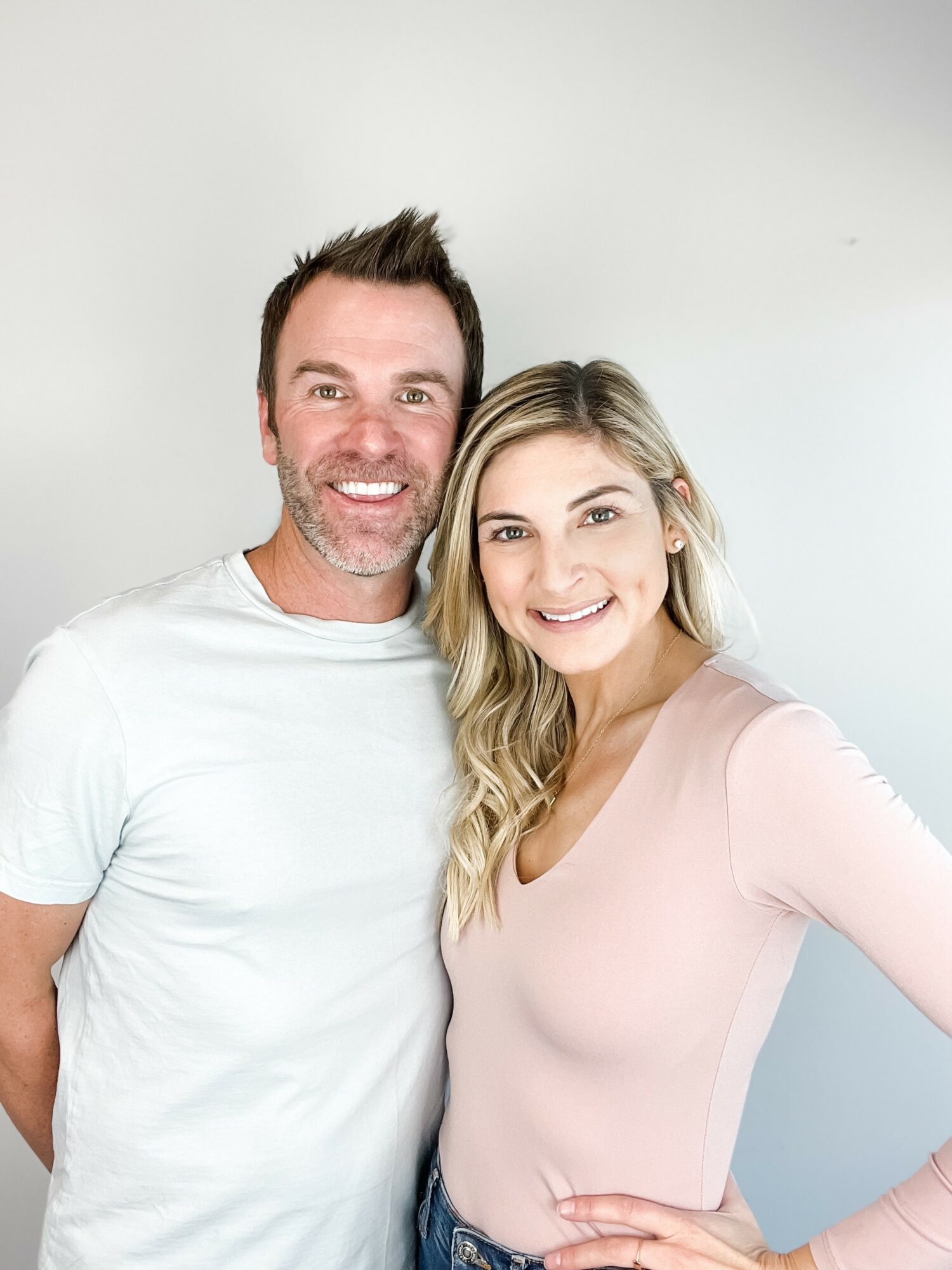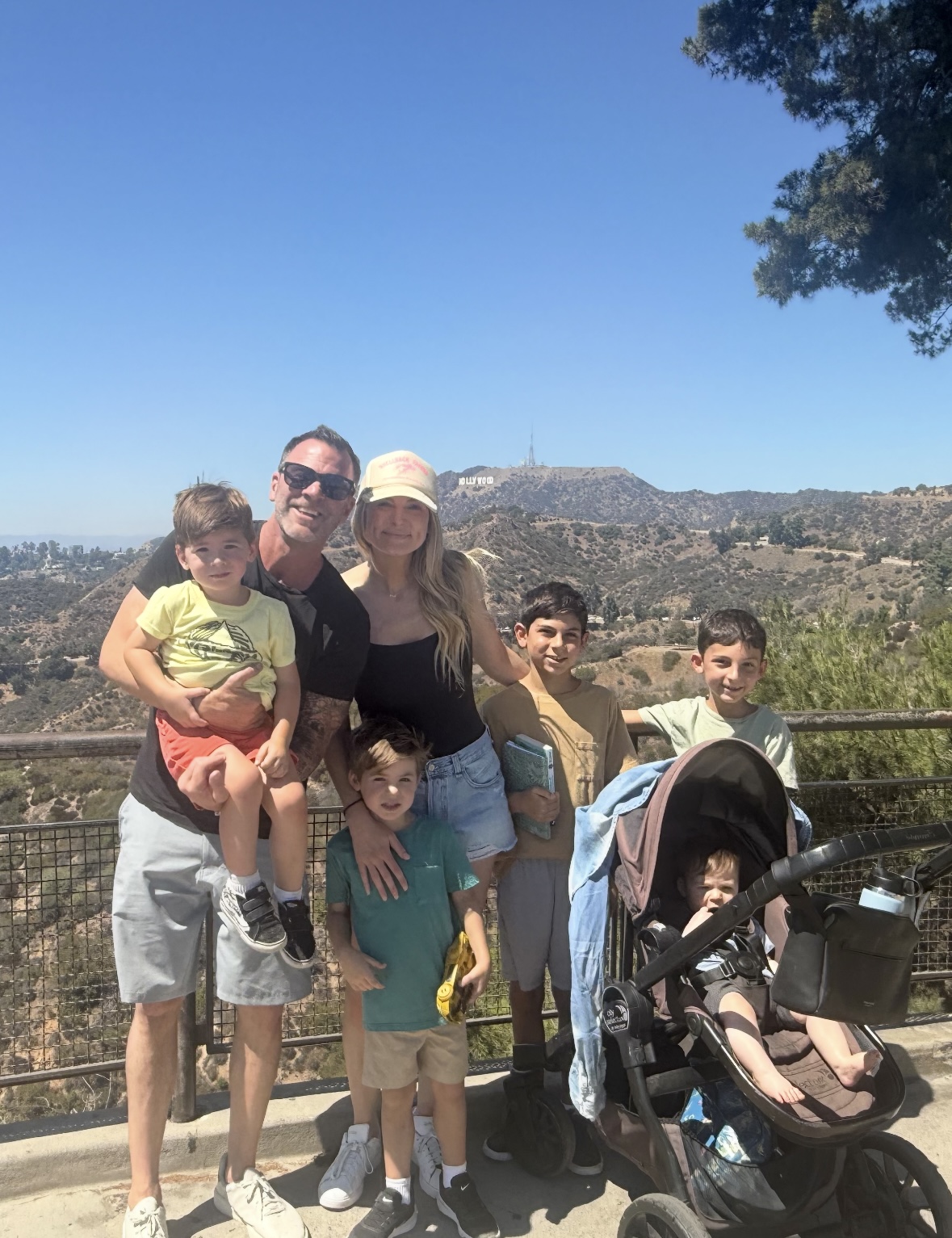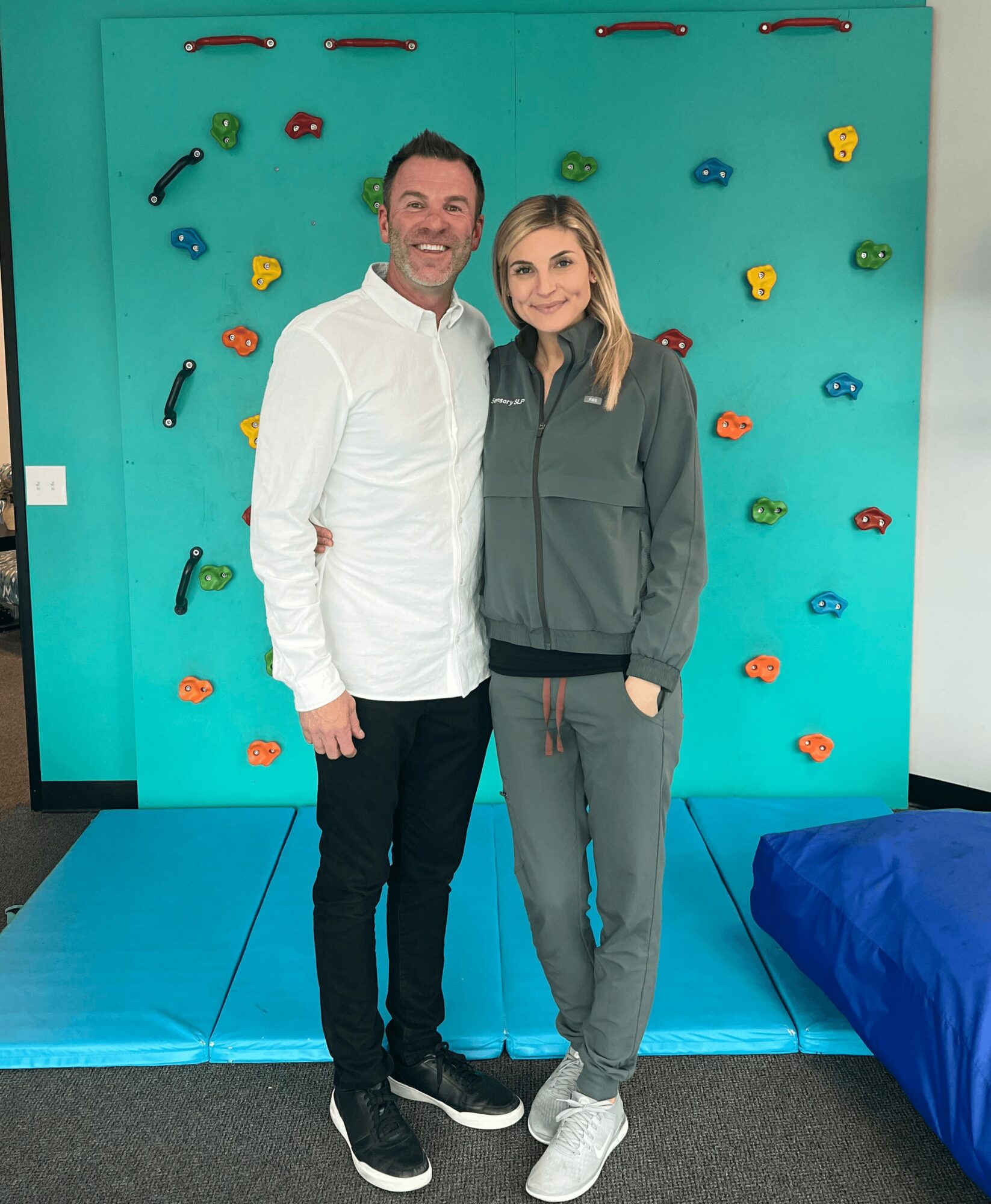

We recently had the chance to connect with Jessie Ginsburg & Chris Wenger and have shared our conversation below.
Hi Jessie & Chris, thank you for taking the time to reflect back on your journey with us. I think our readers are in for a real treat. There is so much we can all learn from each other and so thank you again for opening up with us. Let’s get into it: What is something outside of work that is bringing you joy lately?
When we’re not working, we’re with our five energetic boys, ages 9 months to 9 years. Our home is filled with trampoline dance parties, building towering block castles, and movie nights where every blanket in the house gets piled onto the couch. Life with five kids is action-packed and always so much fun. There’s truly never a dull moment, and we wouldn’t have it any other way.
Can you briefly introduce yourself and share what makes you or your brand unique?
We’re Jessie Ginsburg and Chris Wenger, a speech-language pathologist couple from California. Together, we’ve trained tens of thousands of therapists worldwide to better support autistic children through our international speaking engagements, the NeuroAffirm Therapy Academy, and our weekly live show. With a community of over one million followers, we’re proud to be leading a global shift toward care that is not just effective, but affirming and strengths-based.
Jessie is a sensory-trained speech-language pathologist and the founder of Pediatric Therapy Playhouse, a top-ranked clinic in Los Angeles. She’s also the bestselling author of Ready Set Connect, the creator of the Inside Out Sensory Communication Programs, and is known on social media as the “Sensory SLP.”
Chris is a high school speech-language pathologist with ADHD, known online as “Speech Dude.” He’s the creator of the Dynamic Assessment of Social Emotional Learning and trains educators on how to write neurodiversity-affirming Individualized Education Plans (IEPs).
So what does “neurodiversity-affirming” mean? It’s the belief that neurological differences like autism and ADHD are natural variations of the human brain, not deficits to be “fixed.” A neurodiversity-affirming approach prioritizes respect, access, autonomy, and authenticity. It’s about supporting individuals in ways that honor who they are, instead of trying to make them appear more “typical.”
Thanks for sharing that. Would love to go back in time and hear about how your past might have impacted who you are today. What relationship most shaped how you see yourself?
Our relationship with each other has shaped us more than anything else. We often say we’ve become the best versions of ourselves because of one another. We’re both deeply committed to personal growth, so whether it’s trading notes from a great book, unpacking ideas from a podcast, or trying out a new parenting strategy, we’re constantly learning and evolving together.
When did you last change your mind about something important?
Parenting decisions come pretty naturally to us, but business decisions are more complex since our personal and professional lives are so intertwined. Recently, we shifted our focus to the bigger vision: improving the ways autistic children are supported worldwide. To make that happen, we knew we needed to move forward as a true team.
That’s why we rebranded our podcast as The NeuroAffirm Show, aligning it with the NeuroAffirm Therapy Academy and the NeuroAffirm Therapist Directory. Our goal is not only to make neurodiversity-affirming education accessible to all therapists but also to build a strong, uplifting community where professionals feel supported and inspired.
So a lot of these questions go deep, but if you are open to it, we’ve got a few more questions that we’d love to get your take on. What’s a belief you used to hold tightly but now think was naive or wrong?
When we first entered the field, we were taught that the goal of therapy with autistic children was to help them act more neurotypical. For example, teaching eye contact was seen as essential.
We now know this approach was misguided. Pushing neurodivergent children to “mask” their differences often leads to low self-esteem and mental health challenges. Today, our focus is entirely different: helping kids express themselves authentically, communicate in ways that feel comfortable, and build meaningful relationships. The goal isn’t to change who they are, it’s to empower them to be themselves.
Okay, we’ve made it essentially to the end. One last question before you go. What is the story you hope people tell about you when you’re gone?
We hope people will remember us as therapists and advocates who helped spark a global movement toward neurodiversity-affirming care, a movement that reshaped how autistic individuals are supported, celebrated, and understood. More than anything, we want to be remembered for amplifying voices that were too often overlooked, and for helping the next generation of therapists and families embrace children for exactly who they are.
Contact Info:
- Website: www.sensoryslp.com & www.pediatrictherapyplayhouse.com & www.speechdude.com
- Instagram: https://www.instagram.com/sensory.slp/ & https://www.instagram.com/speechdude/
- Linkedin: https://www.linkedin.com/in/jessieginsburg/
- Facebook: https://www.facebook.com/sensory.slp & https://www.facebook.com/thespeechdude
- Yelp: https://www.yelp.com/biz/pediatric-therapy-playhouse-los-angeles-3?osq=Pediatric+Therapy+Playhouse
- Youtube: https://www.youtube.com/@SpeechDudeJessieGinsburg/streams

